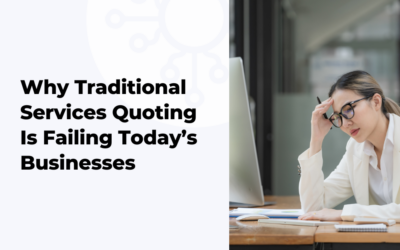In today’s rapidly evolving business environment, service organizations are facing an unprecedented level of complexity and competition. To remain viable and thrive, businesses must maximize the return on their services portfolios. This is especially critical for companies looking to achieve:
- Sustainable Growth
- Profitability
- Competitive Advantage
With services revenue becoming a primary (and sometimes sole) revenue stream for many organizations, optimizing and streamlining services management has never been more urgent. The need to de-risk inefficiencies and control costs is paramount, and this urgency is directly tied to the financial health of your business.
Why Services Optimization is a Priority for CFOs and CXOs
CFOs and CXOs are tasked with ensuring that service optimization not only meets the strategic goals of the company but also contributes to overall financial stability. The balance between driving innovation and maintaining fiscal discipline can be delicate. A report from The CFO Magazine sums up the challenge succinctly: “CFOs find themselves caught between the imperative to drive innovation and their mandate to mitigate unnecessary financial exposure.” This challenge also extends to other CXOs who must balance efficiency with growth.
Key Challenges Driving the Need for Optimization
Service organizations are confronted with several critical challenges:
- Increasing Customer Demands for Customization – Clients now expect highly personalized solutions. These bespoke demands affect resource availability, impact pricing models, and often lead to frequent contract changes that complicate service delivery.
- Project Overruns and Implementation Delays – Statistics show that 43% of service implementations take longer than expected, with 70% of digital transformation projects failing to meet their initial targets.
- Customer Churn Due to Poor Delivery Experiences – Research indicates that seven out of ten customers will churn after a poor service experience. This has direct financial consequences, from lost revenue to damage to brand reputation.
The Cost of Inaction
Failing to address inefficiencies in service management can have significant financial ramifications, including:
- Lost Revenue Opportunities – Missed or delayed service delivery results in unrealized potential.
- Eroded Profit Margins – Project overruns and scope creep can quickly eat into your bottom line.
- Budget Shortfalls – Without a streamlined process, unanticipated costs can cause cash flow issues.
- Inefficient Resource Utilization – Wasted resources and employee downtime directly affect profitability.
- Demotivated Teams – When processes aren’t optimized, internal teams face frustration that impacts productivity.
A reactive approach to managing these risks is no longer sufficient. Service organizations must proactively adopt a connected, data-driven strategy to improve service quoting and delivery.
The Path Forward: A Connected Services Strategy
The reality is that many service-based companies still rely on outdated, siloed processes, which result in fragmented decision-making and operational inefficiencies. To remain competitive, organizations must embrace a modern approach that aligns service quoting, sales, and delivery in real-time with broader business objectives.
In our next blog, we’ll explore the hidden risks that continue to undermine service organizations—and how addressing them directly can help improve financial outcomes and long-term success.
Take a Quick 5-Min Survey to Uncover Key Obstacles & Identify Opportunities for your Services Quoting
Get instant insights with your Connected Services Outcomes Assessment Score—highlighting opportunities to enhance pricing effectiveness, revenue optimization, and financial predictability. Start Now!








